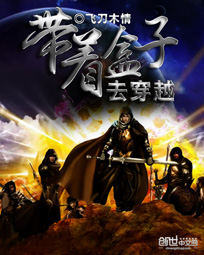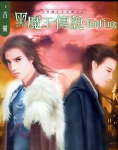wgolding.lordoftheflies-第58部分
按键盘上方向键 ← 或 → 可快速上下翻页,按键盘上的 Enter 键可回到本书目录页,按键盘上方向键 ↑ 可回到本页顶部!
————未阅读完?加入书签已便下次继续阅读!
cal and moral thinking。
Turning from these general considerations of Mr。 Golding's fable to the way it is actually worked out; we find the novel divided into three sections。 The first deals with the arrival of the boys on the island; the assembly; the early decisions about what to do; the emphasis falls on the paradisal landscape; the hope of rescue; and the pleasures of day…to…day events。 Everything within this part of the book is contained within law and rule: the sense of the aweful and the forbidden is strong。 Jack cannot at first bring himself to kill a pig because of 〃the enormity of the knife descending and cutting into living flesh; because of the unbearable blood。〃 Roger throws stones at Henry; but he throws to miss because 〃round the squatting child was the protection of parents and school and policemen and the law。〃 The world in this part of the book is the world of children's games。 The difference es when there is no parental summons to bring these games to an end。 These games have to continue throughout the day; and through the day that follows。 And it is worth noting that Mr。 Golding creates his first sense of unease through something which is familiar to every child in however protected a society…the waning of the light。 It is the dreams that usher in the beastie; the snake; the unidentifiable threat to security。
The second part of the book could be said to begin when that threat takes on physical reality; with the arrival of the dead airman。 Immediately the fear is crystallized; all the boys are now affected; discussion has increasingly to give way to action。 As the narrative increases in tempo; so its implications enlarge。 Ralph has appealed to the adult world for help; 〃If only they could send us something grown…up 。。。 a sign or something;〃 and the dead airman is shot down in flames over the island。 Destruction is everywhere; the boy's world is only a miniature version of the adult's。 By now the nature of the destroyer is being clearer; it is not a beastie or snake but man's own nature。 〃What I mean is 。。。 maybe it's only us;〃 Simon's insight is confined to himself and he has to pay the price of his own life for trying to municate it to others。 Simon's death authenticates this truth; and now that the fact of evil has actually been created on the island; the airman is no longer necessary and his body vanishes in a high wind and is carried out to sea。
The third part of the book; and the most terrible; explores the meaning and consequence of this creation of evil。 plete moral anarchy is unleashed by Simon's murder。 The world of the game; which embodied in however an elementary way; rule and order; is systematically destroyed; because hardly anyone can now remember when things were otherwise。 When the destruction is plete; Mr。 Golding suddenly restores 〃the external scene〃 to us; not the paradisal world of the marooned boys; but our world。 The naval officer speaks; we realize with horror; our words; 〃the kid needed a bath; a hair…cut; a nose wipe and a good deal of ointment。〃 He carries our emblems of power; the white drill; the epaulettes; the gilt…buttons; the revolver; the trim cruiser。 Our everyday sight has been restored to us; but the experience of reading the book is to make us re…interpret what we see; and say with Macbeth 〃mine eyes are made the fools o' the other senses。〃
If we are to look at Lord of the Flies from the point of view of it being a fable this is the kind of account we might give。 And; as far as it goes; it is a true account。 The main weakness in discussing Lord of the Flies is that we are too often inclined to leave our description at this point。 So we find a Christian being deeply moved by the book and arguing that its greatness is tied up with the way in which the author brings home to a modem reader the doctrine of Original Sin; or we find a humanist finding the novel repellent precisely because it endorses what he feels to be a dangerous myth; or again; on a different level; we find a Liberal asserting the importance of the book because of its unwavering exposure or the corruptions of power。 Now whatever degree of truth we find in these views; it is important to be dear that the quality or otherwise of Lord of the Flies is not dependent upon any of them。 Whether Mr。 Golding has written a good novel or not is not because of 〃the views〃 which may be deduced from it; but because of his claim to be a novelist。 And the function of the novelist as Joseph Conrad once said is 〃by the power of the written word to make you hear; to make you feel…it is; before all; to make you see。〃 And it is recognition of this that must take us back from Mr。 Golding's fable; however pelling; to his fiction。 Earlier I suggested that these two aspects occur simultaneously; so that in moving from one to the other; we are not required to look at different parts of the novel; but at the same thing from a different point of view。
Let us begin by looking at the coral island。 We have mentioned the careful literary reference to Ballantyne (〃Like the Coral Island;〃 the naval officer remarks); the theological overtones with the constant paradisal references; 〃flower and fruit grew together on the same tree;〃 but all these things matter only because Mr。 Golding has imaginatively put the island before us。 The sun and the thunder e across to us as physical realities; not because they have a symbolic part to play in the book; but because of the novelist's superb resourcefulness of language。 Consider how difficult it is to write about a tropical island and avoid any hint of the travel poster cliché or the latest documentary film about the South Seas。 To see how the difficulty can be overe look at the following paragraph:
Strange things happened at midday。 The glittering sea rose up; moved apart in planes of blatant impossibility; the coral reef and the few; stunted palms that clung to the more elevated parts would float up into the sky; would quiver; be plucked apart; run like raindrops on a wire or be repeated as in an odd succession of mirrors。 Sometimes land loomed where there was no land and flicked out like a bubble as the children watched; (p。 53。)
It is this kind of sensitivity to language; this effortless precision of statement that makes the novel worth the most patient attention。 And what applies to the island applies to the characters also。 As Jack gradually loses his name so that at the end of the novel he is simply the Chief we feel this terrible loss of identity ing over in his total inability to do anything that is not instinctively gratifying。 He begins to talk always in the same way; to move with the same intent。 But this is in final terrible stages of the novel。 If we turn back to the beginning of the novel we find Mr。 Golding catching perfectly a tone of voice; a particular rhythm of speech。 Ralph is talking to Piggy shortly after they have met:
〃I could swim when I was five。 Daddy taught me。 He's a mander in the Navy。 When he gets leave he'll e and rescue us。 What's your father?〃
Piggy flushed suddenly。
〃My dad's dead;〃 he said quickly; 〃and my mum…〃
He took off his glasses and looked vainly for something with which to clean them。
〃I used to live with my auntie。 She kept a candy store。 I used to get ever so many candies。 As many as I liked。 When'll your dad rescue us?〃
〃Soon as he can。〃 (p。 11。)
Notice how skillfully Mr。 Golding has caught in that snatch of dialogue; not only schoolboy speech rhythms;2 but also; quite unobtrusively; the social difference between the two boys。 〃What's your father?〃; 〃When'll your dad rescue us?〃 There are two continents of social experience hinted at here。 I draw attention to this passage simply to show that in a trivial instance; in something that would never be quoted in any account of 〃the importance〃 of the book; it is the gifts which are peculiar to a novelist; 〃to make you hear; to make you feel 。 。 。 to make you see;〃 that are being displayed。
Perhaps; however; we feel these gifts most unmistakably present not in the way the landscape is presented to us; nor the characters; but rather in the extraordinary momentum and power which drives the whole narrative forward; so that one incident leads to another with an ine


![[LOL]爱的双排封面](http://www.9wshu.net/cover/12/12832.jpg)



